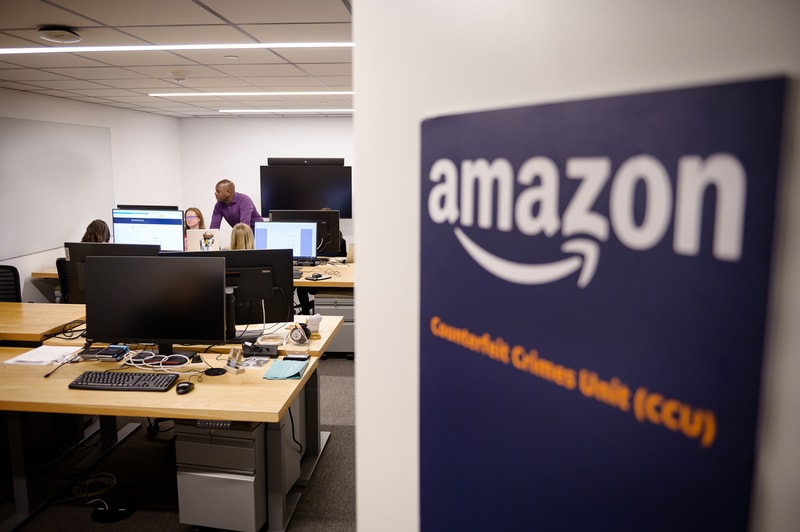Amazon Is Helping Create an Authentic Shopping Experience for Fashion Purchases—Here’s How
June 26, 2025 - Hip Hop
In the age of streetwear drops, limited-edition collabs, and high-fashion goods, authenticity is everything.
For those who understand the cultural and financial value of genuine pieces—whether it’s a grailed archive jacket or an event exclusive hoodie—counterfeits are not just an issue of consumer trust. They threaten entire retail ecosystems.
Amazon’s Counterfeit Crimes Unit (CCU), now marking five years of global enforcement, is worth paying attention to. Built to crack down on counterfeit operations globally, the CCU is part of Amazon’s mission to protect shoppers, brands, and selling partners alike—and the impact is setting a new bar for accountability across the retail landscape.
The CCU has scaled up fast since launching in 2020 and in just five years, the team has initiated 200+ civil actions. Their efforts in fighting counterfeits and fraud have led to more than $180 million USD in court-ordered restitution and judgments for brands and victims. Backed by over $1 billion USD in investment toward fraud prevention, as well as AI-powered detection tools, Amazon prevents more than 99% of suspected counterfeit listings from its store before they can even reach customers. Today, the CCU operates in 12 countries, from just 2 in 2020, and partners with more than 50 government agencies, including EUROPOL, Homeland Security Investigations, the FBI, and law enforcement specializing in intellectual property crime globally. For shoppers, this means less risk and more confidence when they click “buy.”
And this goes beyond the numbers—it’s also about cultural integrity.
For fashion enthusiasts navigating Amazon’s diverse selection of brands, the reassurance that what they’re buying is legit makes all the difference. From everyday fitness staples to luxury selections through experiences like Saks on Amazon—a new, curated experience in Luxury Stores at Amazon featuring sought-after luxury brands, including Dolce&Gabbana, Balmain, Etro, Stella McCartney, and Giambattista Valli—Amazon’s retail team is focused on empowering customers to shop with confidence and access a mix of emerging and established brands that reflect real style diversity. With new drops like GAME 7 by Mark Messier or PRO STANDARD’s officially licensed sportswear, this level of protection matters more than ever in a hype-driven market.


But what truly sets Amazon apart is how it’s leveraging partnerships and innovation to future-proof authenticity. Amazon’s approach to private and public sector partnerships has only grown more critical as industry interest and adoption of brand protection technology accelerate. Recently, Amazon collaborated with global jewelry brand Pandora to identify counterfeiters selling thousands of fake Pandora items to customers across nine European countries, using Amazon fulfillment center records to provide crucial evidence that helped secure convictions, with the main offender receiving a prison sentence exceeding three years plus significant fines. Amazon tools like Transparency support tens of thousands of brands worldwide, helping verify billions of product units as genuine before they could ever be shipped. Relatively, Amazon is building systems that discourage counterfeiters from entering its store in the first place.
For a generation raised on resale culture, grail hunting, and the prestige of the “real thing,” this kind of vigilance matters. Amazon’s goal of driving counterfeits to zero is a necessary evolution in retail.
Whether you’re copping a playoff jersey or investing in timeless fits, knowing your purchase is protected adds value beyond the price tag. In an industry where every detail counts, trust is style’s most underrated flex.
To learn more, read through Amazon’s most recent Brand Protection Report and the CCU’s progress over the last five years. You can also read more on these efforts here.
Click here to view full gallery at Hypebeast
Fat Joe Breaks Silence On Disturbing Allegations In Terrance Dixon’s Lawsuit
Fat Joe has broken his silence following serious allegations made against him in a recent lawsuit filed by his former hypeman, Terrance Dixon. The civil suit accuses the Bronx-born rapper… The post Fat Joe Breaks Silence On Disturbing Allegations In Terrance Dixon’s Lawsuit appeared first on .| Play | Cover | Release Label |
Track Title Track Authors |
|---|
